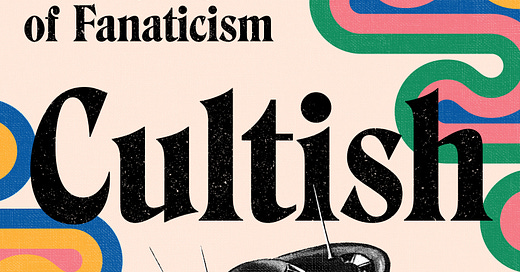Welcome to this week’s edition of wordcloud, a newsletter by Nicole Fallert about the space between reality and ideas. If you enjoy this content, please consider sharing and subscribing.
Wedge sandals with capris and a peplum shirt? Cheugy.
Posting about your “adulting”? Cheugy.
Hosting The Office marathons while drinking Barefoot Moscato? Cheugy.
“Cheugy” is the new word TikTokers have coined to capture the essence of the “millennial girlboss aesthetic.” According to a recent dive into the word by The New York Times’ Taylor Lorenz, the moniker defines literally anything that’s campy without being tacky, off-trend, generic “out of date or trying too hard.” It’s the “twenty-fun!” caption on a Boomerang of a 21-year-old woman wearing PrettyLittleThing in front of those golden number-shaped balloons as she pops open a sparkly pink bottle of Andre bubbly.
To be cheugy is neither “basic” nor “uncool,” Lorenz writes, because most people who use the word also consider themselves to be cheugy. It’s more so an act of self-deprecation that pokes at what we’ve all been working so hard to achieve since our 2000s childhoods: to fit in, even if at the expense of imagination.
And we are all guilty of this.
On a recent “girls’ trip” (which is undoubtedly a cheugy term) to the beach, my friends — most of whom are white women between the ages of 24 and 25 — developed a game of naming decidedly cheugy things (such as posting the “Life’s a Beach” caption on our Instagram stories or the fact we still think White Claw spiked seltzer is the coolest invention ever since sliced bread). This game provided an ample source of laughter, especially because once we started naming cheugy things, we couldn’t un-see the cheug that predominates our world of the contemporary (typically white) millennial woman.
And it should be mentioned that cheugy-ness is a term that has come from white women to describe other white women, @kierabreaugh said on TikTok, according to Refinery29. I’ve written previously about white feminism, and how this ideology serves to push other feminisms to the wayside of our cultural zeitgeist. “Cheugy” serves to do the same.
Cheugy-ness is a symptom of white feminism; white women controlling what is in and what isn’t, a binary that fails to account for the trends that fall outside of a group with a shared background. (Hopefully) white women have evolved to the point they understand how “girlboss feminism” is dangerous to the cause of gender equality, but “cheugy” makes me concerned we haven’t made it so far. Merely pointing out other white women’s Insta-worth doesn’t absolve us from upholding white feminism.
While I was at the beach thinking about my own cheugy-ness, I interviewed Amanda Montell for the Women’s Media Center about her new book Cultish, in which she writes that “language is the key means by which all degrees of cult-like influence occur.”
Montell spoke to me about the ways cultish language inhabits our world, from fitness classes like SoulCycle to 3HO, a Sikh-derived alternative religion — filtering unique language systems to influence group members’ behavior. And, like cheugy-ness, once you start to look for cultish language, you can’t un-see it in our world.
“Cultish language works so efficiently (and invisibly) to mold our worldview…that once it’s embedded, it sticks,” Montell writes. “After you grow your hair out, move back home, delete the app, whatever it is, the special vocabulary is still there.”
And it’s not that cultish language brainwashes us from originality; cultish language is a confirmation bias mechanism, enabling us to act on beliefs or concerns about life we’ve always held.
“It's permission for us to do something we already want to do,” Montell told me. “We totally just believe what we want to believe at the end of the day.”
While conducting research for this story during my beach trip, “cultish” and “cheugy” began to sound synonymous in my head. Montell says that any word that distinguishes what’s in or out of a group is inherently cultish. Given this logic, nominating “Live, Laugh, Love” mugs or owning WebKinzs as “cheugy” is also cultish, creating distinct “in” and “out” groups.
But unlike many of the cultish groups Montell studied for Cultish, belonging to the cult of the cheugs doesn’t make in-members necessarily superior to the rest of society - they are society. The term laughs at the face of culture itself.
And the cult of the cheugs are seeking that confirmation factor. They are mere young adults in their 20s and 30s reaching for what they already want to believe; we’re all a little un-cool and that’s totally okay. It’s not the actual cheugy things that deprive us of our originality; it’s the need for belonging that makes it easier to abandon individuality. To young internet users, they see our generation working so hard to blend into one another at the expense of ourselves, following “culty” beauty trends or “cult classic” novels because to do the alternative thing would risk exclusion from the group.
I’m inspired by the young internet world that’s calling us out for our cheugyness, or should I say, cultishness. It’s about time we looked up from our overly decorated apartments and gender reveal brunches to see what’s actually happening: real life.
Today’s Prompt:
How do you see cheugyness or cultishness inhabit your life?
Correction: an earlier version of this newsletter incorrectly stated “all” of the women on the beach trip were white.




